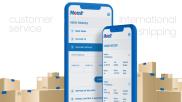
Data has become the lifeblood of businesses, helping them to generate insights, power automation, and improve decision-making. In order to fully leverage data, organizations must first acquire and organize vast amounts of information from a variety of sources — a process known as data ingestion.
Effectively performing data ingestion is crucial for businesses seeking to drive competitive advantage and operational efficiency. This process involves acquiring data through technologies like data integration tools and APIs and transforming, cleansing, and organizing it into a functional structure for analysis.
Read on as we tell you more about the benefits of a well-executed data ingestion strategy, some common challenges, and best practices to consider about data ingestion.
Understanding Data Ingestion
Data ingestion refers to collecting, importing, and transforming data from various sources into a format suitable for analysis and storage. It involves acquiring information from many channels, such as databases, sensors, applications, and external feeds. By aggregating data from these sources, businesses can gain a holistic view of their operations, customers, and market trends.
Benefits of Data Ingestion for Businesses
There are some benefits businesses can gain from utilizing good data ingestion strategies. Some of the advantages companies can expect to obtain include:
• Enhanced Decision-Making Capabilities
Effective data ingestion enables organizations to make data-driven decisions. By integrating and analyzing data from different sources, businesses can gain comprehensive insights into their operations, customer behavior, and market trends. These insights empower decision-makers to identify patterns, spot emerging opportunities, and make informed choices that drive growth.
• Improved Data Accuracy and Reliability
Data ingestion ensures data's accurate capture and transformation, improving its overall quality. Businesses can eliminate errors, duplicates, and inconsistencies by implementing validation checks and data cleansing procedures during ingestion. This approach enhances the reliability and trustworthiness of the analysis and decision-making stages.
• Seamless Integration of Disparate Data Sources
With data ingestion, organizations can seamlessly integrate data from disparate sources, regardless of the format or structure. This integration eliminates data silos and enables a unified view of the business. By breaking down data barriers, businesses can comprehensively understand their operations and derive meaningful insights that drive innovation and efficiency.
• Real-Time and Near-Real-Time Data Insights
Data ingestion allows organizations to capture and analyze data in real-time or near-real-time. By ingesting data as it is generated, businesses can respond swiftly to emerging trends, customer demands, and market fluctuations. Real-time data insights permit agile decision-making, enabling businesses to stay ahead of the competition and adapt to dynamic market conditions.
Support for Data-Driven Strategies and Initiatives
Data ingestion forms the foundation for implementing data-driven strategies and initiatives. By ingesting and integrating information from various sources, businesses can identify correlations, trends, and patterns that drive innovation and uncover new revenue streams. Whether personalizing customer experiences, optimizing supply chains, or predicting market trends, data ingestion enables businesses to unlock the full potential of their data assets.
Key Challenges in Data Ingestion
While data ingestion offers numerous benefits, businesses must address several challenges to ensure successful implementation, such as:
• Data Quality and Integrity Issues: Ingesting large volumes of data from diverse sources can introduce quality issues. Incomplete, inconsistent, or inaccurate data can adversely impact analysis and decision-making.
• Scalability and Performance Considerations: As data volumes grow exponentially, businesses need scalable data ingestion processes and infrastructure to handle the increased load.
• Security and Privacy Concerns: Data ingestion involves handling sensitive information, making security and privacy crucial considerations. Organizations must implement robust security measures to protect data during ingestion, transmission, and storage.
• Dealing With Different Data Formats and Structures: Data ingestion requires handling it in various formats, such as structured, semi-structured, and unstructured data. These diverse formats pose challenges in data extraction, transformation, and integration.
• Legacy System Integration Challenges: Businesses often encounter difficulties integrating data from legacy systems into modern platforms. Legacy systems may use outdated technologies, have incompatible formats, or lack proper documentation.
Best Practices for Effective Data Ingestion
Businesses should consider the following best practices to maximize the benefits of data ingestion:
• Establishing Clear Data Governance Policies
Implementing robust data governance policies ensures data consistency, quality, and compliance. Clear guidelines regarding ownership, access controls, and lifecycle management help maintain data integrity throughout the ingestion process.
• Choosing the Right Data Ingestion Tools and Technologies
Selecting appropriate data ingestion tools and technologies is crucial for efficient and reliable data processing. Consider factors such as scalability, format compatibility, performance, and ease of integration when choosing the right tools for the job.
• Ensuring Data Quality and Validation Procedures
Implementing data quality checks and validation procedures during ingestion helps identify and correct errors, ensuring high-quality data for analysis. Data profiling, cleansing, and outlier detection can enhance accuracy and reliability.
• Implementing Scalable and Reliable Data Pipelines
Building scalable and reliable data pipelines ensures efficient data ingestion. Utilizing technologies like stream processing, distributed computing, and parallel processing can help with large data volumes and ensure high throughput.
• Considering Security and Compliance Requirements
Implement robust security measures to protect data during ingestion. Employ encryption techniques, secure transmission protocols, and access controls to safeguard sensitive information. Stay updated with relevant data protection regulations to maintain compliance.
Conclusion
In today's highly-competitive business landscape, effective data ingestion plays a pivotal role in driving growth. By implementing robust data ingestion processes, businesses can enhance decision-making capabilities, improve data accuracy, integrate diverse sources seamlessly, gain real-time insights, and support data-driven strategies.
As you integrate data ingestion into your business, you can also earn money on the go with Pawns.app. They help you get passive income by completing online surveys and sharing your internet while at the same time helping other companies with their own data-acquisition needs.
 Samsung Champ Neo Duos
Samsung Champ Neo Duos  Sony Xperia Z3
Sony Xperia Z3  Nokia Lumia 610
Nokia Lumia 610  LG K9
LG K9  Huawei P30 Pro
Huawei P30 Pro  Xiaomi 14 Ultra
Xiaomi 14 Ultra 

